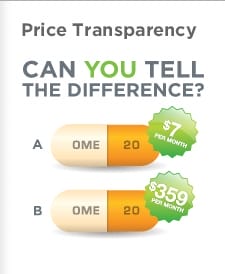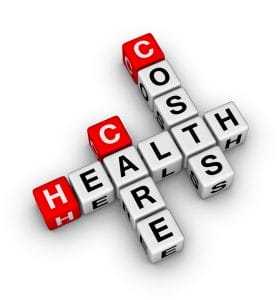I recently submitted a Letter to the Editor of our town’s local newspaper, the Marblehead Reporter in response to an opinion piece about health insurance and health care. The piece was published in the Walpole Wicked Local paper and carried by the Marblehead Reporter. The original piece can be found here: http://walpole.wickedlocal.com/news/20170316/hudson-health-care-should-be-for-all. The author equated health insurance with healthcare and reported that having health insurance “opens doors” for people.
Below is my response, which I feel should be seen by a larger audience.

This is in response to the article written by Reverend John F. Hudson in the March 16th edition of the Reporter. I appreciate the Reverend’s comments; however, I disagree with a key issue. The Reverend, like most Americans, has confused health insurance with healthcare. As a physician and patient myself, I can attest that having health insurance is not synonymous with having healthcare. Health insurance may “open doors,” as the Reverend believes, but if you can’t afford to go through the door, what does it matter if the door is opened? We should be less focused on making health insurance affordable and more focused on making healthcare affordable.
To illustrate my point, I would like to share a patient story with you (without identifying the patient, of course). This patient, who has health insurance, needed a prescription for a particular medication. Interestingly, with her insurance she still would have paid $341 out of pocket. Instead, I found her the same medication for $88 without using insurance. Obviously, this particular medication does not cost $341 or my patient would not have been able to buy it for $88.

To give one more example, I have a patient who had a panel of lab work performed at an obstetrician’s office. The office billed her insurance company $931. My patient still ended up having to pay $472 out of pocket. These same lab tests can be done in my office for $66.50, without using insurance.
The unconscionable mark-up in both of these examples is due to a third party (i.e. insurance companies) negotiating the rates with pharmacies and hospitals.
There are many people who have insurance, but pay so much in premiums they can’t actually afford to go to the doctor due to high copays, co-insurance and hidden costs of labs and medications. When was the last time you went to a doctor and asked, “How much is the test going to cost?” You probably have never asked because you assumed your health insurance was going to pay for it. Or, if you did ask I bet your doctor was not able to tell you the price. Price transparency as it relates to healthcare costs is a huge problem in this country.
There are some medications, health conditions and medical procedures that do cost a great deal of money, like chemotherapy, hospitalizations, surgeries, and dialysis. These are things we need insurance for. We do not need insurance for everyday primary care services. In reality, primary care is not expensive, as I hope I illustrated with my two examples above. By using insurance to pay for primary care services like a lab test that really costs $5 or an x-ray that really costs $75 we will continue to drive up premiums. Insurance should be used for what insurance was actually meant for, unexpected or catastrophic events. Do we use our car insurance to pay for gasoline or our home insurance to pay for every day repairs? Of course we don’t, because if we did premiums would be through the roof and nobody could afford them.
 The scenarios I shared above are not isolated events, but everyday occurrences. I have a multitude of examples and patient stories that I could share to further illustrate the point that health insurance does not equal healthcare. Addressing health insurance is not the solution, it’s only when healthcare is made affordable (and it can be) that all people can actually use and afford it.
The scenarios I shared above are not isolated events, but everyday occurrences. I have a multitude of examples and patient stories that I could share to further illustrate the point that health insurance does not equal healthcare. Addressing health insurance is not the solution, it’s only when healthcare is made affordable (and it can be) that all people can actually use and afford it.

